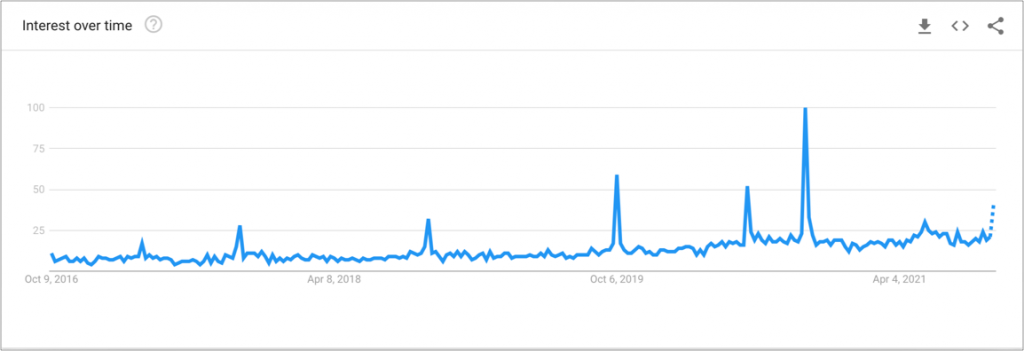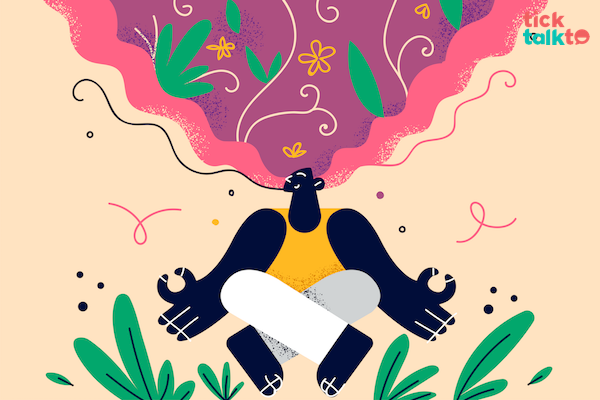Recent global events like the COVID-19 and the Tokyo Olympics1 have brought the much needed public discourse on mental wellbeing to the forefront. During the World Health Assembly in May 2021, governments from around the world recognized the need to scale up quality mental health services at all levels.
At a more household level, the extensive measures deployed to contain the pandemic have severely impacted all of us. Loss of loved ones, illness, fear of disease, lockdowns, quarantines, isolation, lack of access to essential goods and services, travel restrictions, work from home, job losses, financial impacts etc., have taken a serious toll on everyone’s mental health and continue to do so. This has sensitized the general public on the importance of mental wellbeing.
With the spotlight on mental health, we, as a society, have a real shot at bringing in change. I say it with cautious optimism, but we have a chance at scaling up the piecemeal mental health infrastructure like helplines built during the pandemic and make it a sustainable public service. This truly could be the mental health moment the world needs desperately.
Mental Health in an Unequal World
The World Federation for Mental Health (WFMH) is an international membership organization founded in 1948 to advance, among all peoples and nations, the prevention of mental and emotional disorders, the proper treatment and care of those with such disorders, and the promotion of mental health.2
This year the WFMH has chosen the theme for World Mental Health Day 2021 as ‘Mental Health in an Unequal World’.
Mental health conditions contribute to poor socio-economic outcomes, poor health, illiteracy, premature deaths, human rights violations, economic losses etc. across the nations. But the distribution of these poor outcomes is far from equitable. The COVID-19 pandemic has highlighted the inequalities due to race and ethnicity, sexual orientation and gender identity, and the lack of respect for human rights in many countries, including for people living with mental health conditions. This year’s theme particularly highlights the adverse impact of inequalities on people’s mental health.
In most low- and middle-income countries (LMICs), mental health is a three-pronged challenge;
- Huge mental illness burden: Worldwide, more than 450 million people suffer from mental disorders. In India alone, 150 million people are in need of mental health interventions.
- Grossly inadequate mental health care support structure: Trained human resource like behavioral health practitioners – psychologists, psychiatrists, counsellors, social workers etc. and the physical infrastructure like mental health clinics is grossly inadequate. In LMICs, we just have 2 trained professionals for every 100,000 population. Further the distribution of the facilities is geographically uneven, making it even worse.
- Low uptake of mental healthcare services: Even when professional care services are available, the uptake is very low on account of lack of awareness, lack of access, lack of affordability and stigma. Invariably, most LMICs place a notion of taboo when it comes to mental health.
Sustainable Development Goal 3 and India
For the first time, world leaders are recognising the promotion of mental health and well-being, and the prevention and treatment of substance abuse, as health priorities within the global development agenda. Mental health and substance abuse have been included in the Sustainable Development Agenda, which was adopted at the United Nations General Assembly in September 2015. This single global policy change has moved the needle.
In India, there is a growing recognition of mental health. In 2017, the President of India, Ram Nath Kovind asserted that we “need to talk about mental health issues and treat ailments such as depression and stress”3.
Following the inclusion of mental health in SDG-3, the Mental Healthcare Act, 2017 has been enacted. It replaces the Mental Healthcare Act, 1987 and makes several provisions to improve the state of mental health in India. This includes stating access to mental healthcare as a ‘right’; and instituting Central and State Mental Health Authorities (SMHA), which would focus on building robust infrastructure including registration of mental health practitioners and implementing service-delivery norms. Furthermore the Insurance Regulatory and Development Authority (IRDA) has directed all insurance companies to make provision for medical insurance for treatment of mental illness on the same basis as is available for treatment of physical illness.4
Many more progressive steps like the introduction of ‘Happiness Curriculum’ in Delhi Govt. schools5, MCI changing MBBS syllabus after 21 years to focus on mental health6, NIMHANS’s national helpline psychosocial support and mental health7, KIRAN mental health rehabilitation helpline by Ministry of Social Justice and Empowerment8, Manodarpan initiative of Ministry of Education for psychosocial support for mental health & well-being of students9 etc. are strengthening the public mental health infrastructure.
These initiatives are not just limited to the government. The private sector is participating as well. Startups like TickTalkTo, ePsyClinic10, YourDost11, InnerHour12, Wysa13, Now&Me14 etc. are changing the mental health landscape in India and beyond. Furthermore, non-profit initiatives like Mind@Ease by the Tech Mahindra Foundation15, Mariwala Health Initiative16, The Live Love Laugh foundation17 etc. are targeting the underserved population.
These are steps in the right direction but it is just the beginning.
Our work is not done, and World Mental Health Day is as needed now as ever.
Rosalynn Carter, Former US First Lady & Honorary Chair in World Mental Health Day
TickTalkTo and the COVID-19 pandemic
TickTalkTo formally launched to production on Oct 10, 2018. We started with a vision of a society where mental healthcare is a fundamental right and every member of our society feels cared for and has the comfort of having someone to lean on. This year’s mental health day marks three years of inception. And well, what a journey it has been!
Majority of our work has been during the time of COVID-19. When the pandemic hit and the mental health issues spiked, we were not prepared to handle the increased traffic. We had no idea what we were staring at and we did not have means to service the therapy requests. We didn’t have a choice but do what best we could do within the given constraints. And with some divine intervention things started to work out. Many psychologists started to approach us and offer pro-bono services on the platform to stand in solidarity with the countrymen during the challenging times. This was pivotal. Our spirits were emboldened and one thing led to another. Here are a few highlights from the recent times,
- We built a mental health dashboard for India to assist policy makers battle the psychological crisis with support from ICICI Knowledge Park COVID Fund.
- We worked with MoHRD and AICTE’s ELIS portal by extending free psychological counselling services to thousands of higher education students across India.
- We extended mental health support to high priority groups to minimise the psychological crisis as a result of the outbreak, with support from the CAWACH initiative of Govt. of India which is largest initiative by GOI to support innovations offering comprehensive solutions for through the startup-ecosystem to fight pandemic COVID-19.
- We instituted a free helpline for COVID-19 psychosocial support in collaboration with The George Institute for Global Health India.
We got recognised as a support solution w.r.t. COVID-19 pandemic, by AGNII, Govt. of India.
Unfinished
Mental ill-health is a very serious issue. It impacts each one of us in manners which we don’t realise. It curtails individual freedom, it limits opportunities, it reverses growth and it shatters the nation.
Never in the past has so much attention been paid to mental wellbeing. We, as a society, have a real chance to build universal mental health care infrastructure. We must all come together to build more resilient individuals and communities.
If you are someone who is suffering, seek help. If you are someone who can help, extend a supporting hand to those in need. All for one and one for all.
Let us make sure the conversation around mental health is NOT just a trend every mental health day. Let us make a sustainable change.

